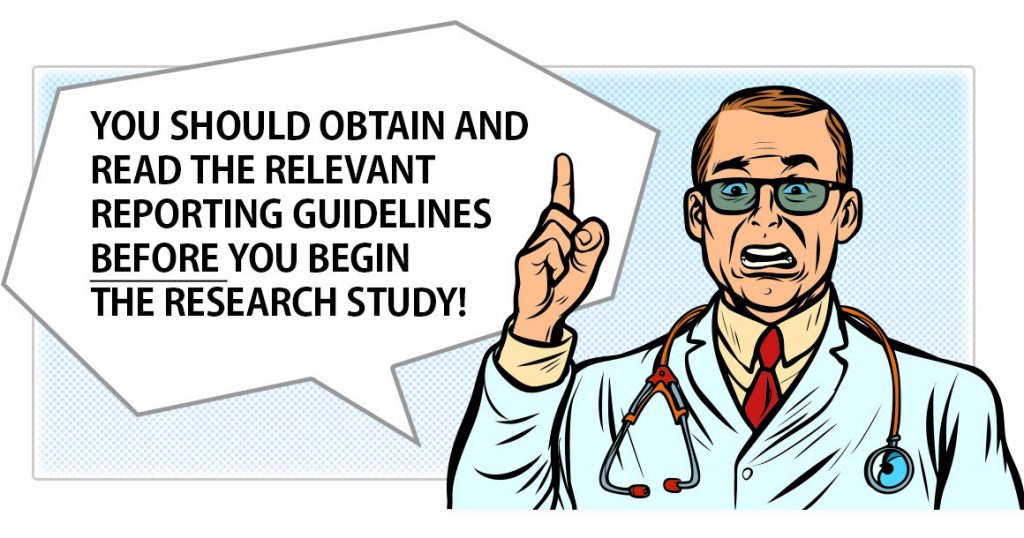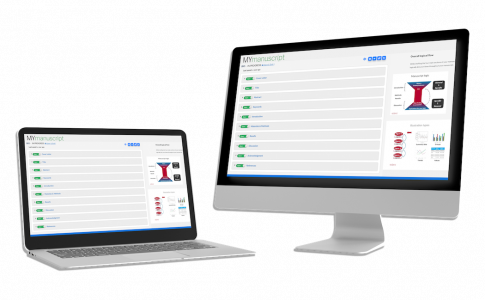Welcome to the EQUATOR!
Guidelines for Good Research in Health Science
By Dr. Dean Meyer, Edanz Learning team

We have all heard and read this many times: “You must follow reporting guidelines when writing and publishing your research.”
Sure… but which reporting guidelines do I follow? CONSORT, STROBE, CARE, ARRIVE, MOOSE, PRISMA, SPIRIT, STARD, AGREE, CHEERS… Such an alphabet soup! So many sets of guidelines! How do I find the reporting guidelines that are relevant to my research?
Enter the EQUATOR network! This collaborative website is an umbrella organization with a free library of reporting guidelines that are used for health research worldwide. This is the one place to find all the guidelines and determine which ones are relevant to you.
Which guidelines should you use?
The guidelines depend on the type of research you are conducting:
For randomized clinical trials, use CONSORT. The CONSORT flow diagram guides you in structuring patient enrollment, allocation, follow-up, and analysis. The CONSORT checklist details the items and statements that must appear in a manuscript reporting a randomized clinical trial.
For systematic reviews and meta-analyses, use PRISMA. The PRISMA checklist covers all the major components of the process of planning, conducting, and reporting a systematic literature review.
For observational studies in epidemiology, use STROBE. This set of reporting guidelines offers separate checklists for conducting cohort, case-control, and cross-sectional studies. Although these are checklists for writing your paper, they are also helpful in designing your study, as the checklists call your attention to the types of data you would need to collect.
Learn more about PRISMA in Edanz’s self-study courses on systematic literature reviews
For case reports, use CARE. Many journals have stopped publishing case reports altogether, and some will publish only case series, but there is always room in the field for a short paper on a patient with an unusual and medically fascinating condition. The CARE checklist will guide you in describing the patient, the diagnostic assessment, the therapeutic intervention, the outcome, and why the case is unique and adds to the medical literature.
Find the best guideline for your study
There are many other types of studies and many other reporting guidelines. Go to the “Library” section of the EQUATOR website and click on “Search for reporting guidelines.” You can narrow down the options by selecting your study type or clinical area or by entering keywords.
EQUATOR also offers a detailed, easy-to-follow PDF flowchart to help you select the guidelines that are relevant to your research.

Check the journal’s preferred guidelines!
Sometimes your target journal will specify which reporting guidelines to use. Check the “author guidelines” page of the journal’s website. This is particularly important if the research involves humans or animals.
Remember: No one wants to hear from the journal: “You should have used a positive control. You should have registered your protocol. You should have obtained ethical approval to conduct the study.” During the publishing process, surprises are bad! At that point, it is too late to correct mistakes in the study design.
So even though these guidelines are called “reporting guidelines” and “reporting” means writing and publishing the manuscript, you should obtain and read the relevant reporting guidelines before you begin the research study. The guidelines will help (guide) you in designing the research process.
You can find even more helpful resources on the EQUATOR website. The “Toolkits” section offers practical tips on scientific writing and on publication ethics.
When you begin your research project with the list of relevant guidelines that you need for planning, conducting, and reporting the work, you will progress with confidence and achieve your goals!
To learn more about writing and publishing your research, check out the self-study courses here on Edanz Learning Lab.
FREE LESSONS
FOR RESEARCHERS AND CLINICAL DECISION-MAKERS
⏱ 30 minutes (self-paced)
Learn how systematic reviews impact clinicians, patients, researchers, decision-makers, and consumers.
PREMIUM TOOL
PLAN, WRITE, AND REGISTER YOUR SYSTEMATIC REVIEW PROTOCOL
- Define your research question.
- Develop your synopsis.
- Write and submit your protocol.
THE EXPERT BLOG
FREE LESSONS
FOR YOUR PhD THESIS OR OTHER RESEARCH PAPERS
⏱ 120 minutes (self-paced)
Learn the best ways to structure, outline, draft, and revise your manuscript.










